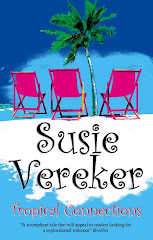 Well, that was encouraging. An unknown reader has just rung me up out of the blue and said how much she enjoyed An Old-Fashioned Arrangement. She used to work in Geneva and absolutely loved the city, and hence the novel. (Photo by Nick, also a former resident.) I asked how she got my number and she said she lived in this area. Kind of her to make the effort to say nice things, I thought.
Well, that was encouraging. An unknown reader has just rung me up out of the blue and said how much she enjoyed An Old-Fashioned Arrangement. She used to work in Geneva and absolutely loved the city, and hence the novel. (Photo by Nick, also a former resident.) I asked how she got my number and she said she lived in this area. Kind of her to make the effort to say nice things, I thought.Recent reading:
Esther’s Inheritance by Hungarian writer Sandor Marai was written in 1939. Perhaps I should have known more about him as it would have helped me to understand this novella. Spinster Esther is almost Chekhovian in her passivity as she waits in her bare but valuable house, knowing she will be swindled by the man she loves. Formerly married to her dead sister, the charming Lajos is a scoundrel but somehow everyone is powerless against him. An interesting and unusual book. Here’s a review if you would like to know more.
I was gripped by The Reluctant Fundamentalist by Mohsin Hamid. A short novel, it’s about an encounter where a quiet American (we’re not sure who he is) meets the Pakistani narrator in an obscure district of Lahore. We learn how the views of the narrator, originally a successful financier in the USA, have changed over the years. Of course I don’t go along with everything the protagonist says about the West but, in my opinion, it’s a book that everyone should read. Here’s a more highbrow review.
Finished The Singapore Grip, by JG Farrell (1978). Phew. A long novel which I kindly gave to someone else for Christmas and borrowed back. Handy that. I always think it's polite to let the receiver of the gift read it first.
Set in Singapore just before the Japanese invasion, and featuring class and racial divisions of the period, it was obviously thoroughly researched. We see the complex situation from several viewpoints, including those of colonial businessmen, soldiers, diplomats and their ‘ladies’. I don’t so much like the initially jocose style in which was written, as it didn’t seem appropriate for the seriousness of the subject. Most of the Brits come out badly, particularly the grand planter expats who had been ripping off the locals for years apparently. The author has woven in real characters with fictional ones. Fortunately he’s fairly kind about the real people, even if it would appear some were not up to the job that faced them. It wasn't a glorious period in British history but the book is worth reading if you are interested in SE Asia.








1 comment:
How lovely to talk to a satisfied reader, Susie!
Post a Comment